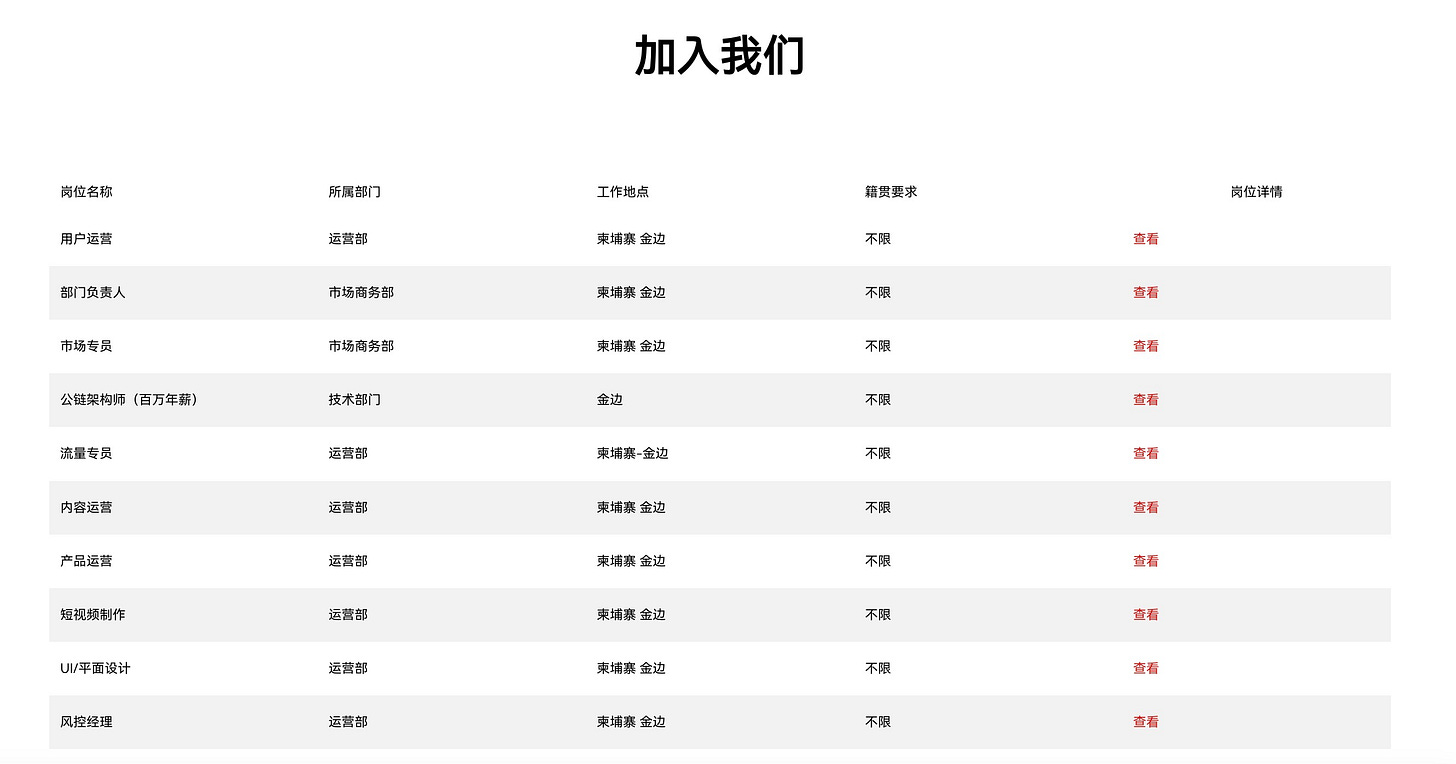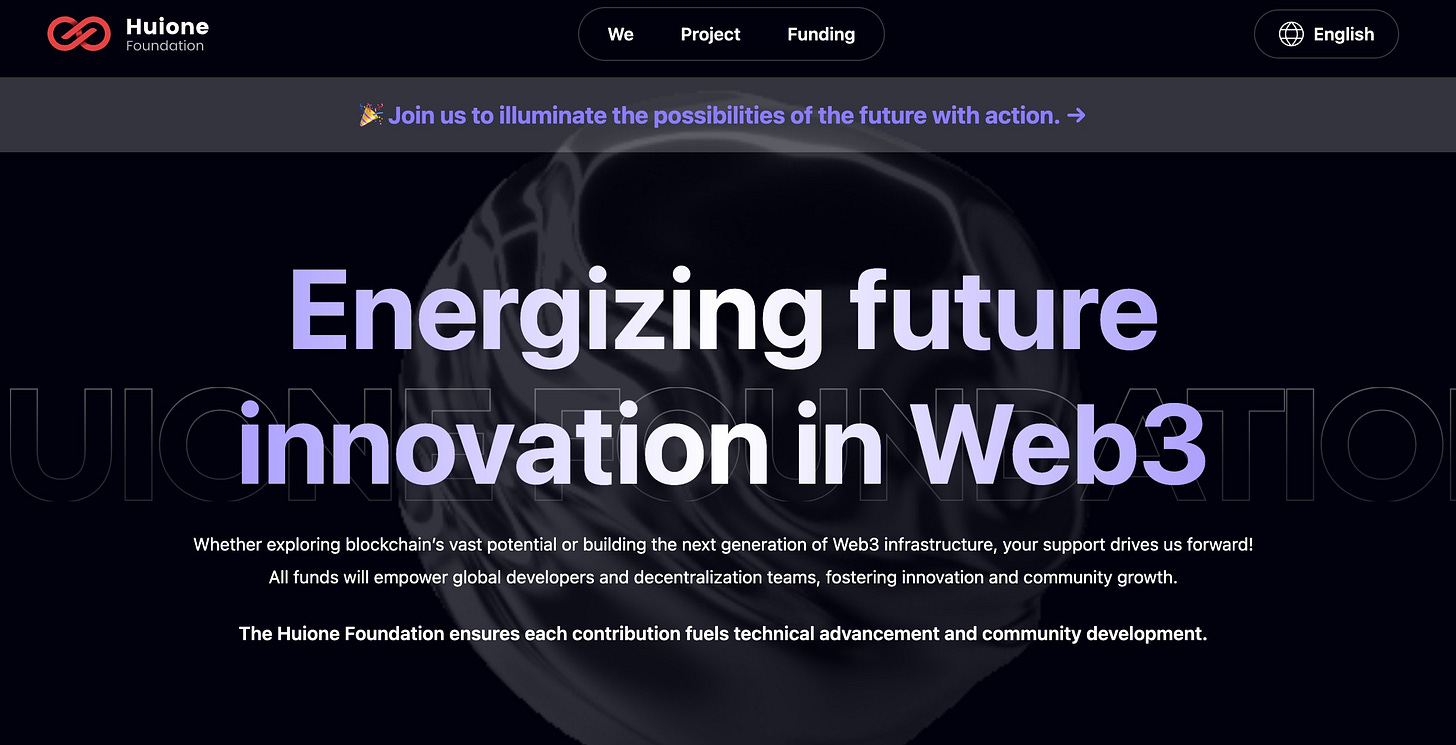Cambodian firm accused of crypto crime quietly launches blockchain 'no government or company can block'
A new blockchain, Xone is backed by Cambodian conglomerate Huione and represents their latest crypto venture.
In many ways, Xone looks little different from the many, many blockchain testnets out there. It boasts a sleek logo, emphasises creating value and decentralized governance, and has even launched an NFT collection.
The lack of public details on who runs it is equally unremarkable in the world of crypto. Its documentation describes the project as “a decentralised blockchain platform not controlled by any single entity,” though the exact meaning of this is unclear. After all, someone had to pay for the website.
Xone said via email it was “developed by a team of seasoned professionals with extensive experience in decentralised finance” but declined to name them.
Xone also markets itself as censorship-resistant, asserting that “no government or company can block or control user access, ensuring all users can freely receive payments and use services on Xone.”
It also told Scamurai its goal was “to enable users to enjoy more efficient and autonomous decentralised financial clearing and settlement services.”
Which, again, wouldn’t really attract much attention – or necessarily be even an issue as there’s plenty of legitimate reasons to want to use a censorship-resistant service – if Xone and its newly launched testnet wasn’t backed by the Huione Foundation, a group that appears to be linked to Huione.
Cambodia’s crypto marketplace
In July last year, blockchain analytics firm Elliptic reported that Huione Pay, a subsidiary of Huione, facilitated billions in crypto-related money laundering and the sales of software and items that supported scam operations.
Over the past few years, Cambodia has become a hub for industrial-scale online scamming. The United Nations Office of the High Commission for Human Rights, or UNHCR, estimated in 2023 that over 100,000 individuals, mostly foreign nationals, worked in compounds dedicated to such scams, with some reportedly coerced into the work under false pretences.
Through a network of Telegram groups and a platform called Huione Guarantee, the company connected buyers and sellers and allowed them to advertise their wares and wants, while serving as a quasi-escrow system to prevent traders from defrauding each other.
Elliptic estimated that $11 billion flowed through merchants using Huione between 2021 and mid-2024. Although Huione claims its platforms support legitimate trading, much of the activity appears to involve laundering money or creating scam websites for crypto and gambling schemes.
Elliptic also uncovered evidence that Huione’s platforms sold detention equipment such as shackles and electric batons, potentially used in human trafficking. In a statement on its website, Huione downplayed these findings, asserting that such sales accounted for less than 0.01% of its platform’s activity and suggesting the equipment could be for “public security interrogation”. It added that people interested in human rights should write about Gaza instead of Huione.
Even still, the company said it deleted posts related to the detention equipment following the Elliptic report. The conglomerate also removed links to Huione Guarantee from its website and the Guarantee site itself appears inactive. However, it remains active under a new domain registered in October 2024 and its Telegram groups still contain tens of thousands of members.
The new site is an almost exact copy to the original Huione Guarantee site. It contains links to the same Telegram groups, as well as the statement by Huione on the Elliptic report. Despite that, Haowang said via email that it was not linked to Huione.
The site’s group chats and ads also contained the same sorts of offers as the original platform, with people offering money laundering services, which are referred to using Chinese slang as “trucks” or “cars”. Others offer services to help build websites for gambling, porn and investment platforms.
The Huione Dollar
Huione has also doubled down on its other crypto ventures. Benedikt Hofmann, UNODC's deputy regional representative for Southeast Asia and Pacific, told Scamurai it was deeply concerning to see this level of infrastructure being developed by entities facing virtually no regulatory limits and a history of linkages to transnational organised crime. This highlights the widening gap between law enforcement and regulatory authorities in some parts of Southeast Asia, he said.
“Asian crime syndicates have been known to exploit vulnerabilities in governance and regulatory frameworks — and the current ‘sunrise period’ for crypto regulation is no different. It’s clear that misuse of blockchain technology and virtual assets by criminal groups in the region is accelerating and that the situation is rapidly outpacing governments’ awareness and capacity to contain it,” Hofmann said.
Prior to the Elliptic report’s release in July, Huione had launched a website for its Huione Chain blockchain project, though it has seen little activity and its associated social media accounts have gone dark.
Nevertheless, Huione Chain is still around — but simply renamed Xone.
A link on Huione's website to a Huione Chain Discord group takes visitors to a server called Xone with the Xone branding.
Xone’s domain, registered in November, has a privacy policy that is identical to the one used by Huione Chain.
Additionally, there is an older website for a “digital finances technology services” company called Xone registered in 2023 that says it has a partnership with Pandabank, another Cambodian company with links to Huione.
Xone is backed by an organisation called the Huione Foundation, which claims to foster innovation in Web3. The foundation lists only two grant recipients in its program so far: Xone (linking to the older site) and Huione Pay. Its domain was registered just days before Xone’s.
At the top of its homepage, it has a link to a page that appears to take donations for its foundation. It claims to have already raised over $37 million.
Xone’s native token, XOC, has additionally been added to the Huione Pay app, as has USDH, a U.S. dollar-pegged stablecoin launched by Huione. (USDH is created by Huione Group and should not be confused with several other tokens with similiar names.)
According to its Github repository, “the value reserve of USDH comes from Huione underlying real assets”.
USDH is promoted on the website of another Huione company, Huione Crypto, which is registered as a business in Poland but lists the work location for all its current job vacancies as Phnom Penh, the capital of Cambodia.

Like Xone, USDH touts regulators’ inability to control it. “USDH is not restricted by traditional regulatory agencies, and users' assets will not be frozen at will. They can manage and use assets more freely and enjoy greater financial autonomy,” it says on its website, adding it solves compliance issues such as “common freezing and transfer restrictions.”
The development of a stablecoin and proprietary blockchain platform now being marketed as a solution to circumvent the controls and avoid freezing of criminal assets will, according to the UNODC’s Hofmann, undoubtedly increase challenges facing law enforcement and financial investigators.
“It’s more critical than ever for governments to understand the severity, scale and reach of this global threat if left unchecked,” he said. “What the region needs is to prioritise solutions that put an end to the lack of regulation and prevent organised crime from taking over the crypto ecosystem.”
The Huione Foundation and Huione Crypto didn't respond to requests for comment. The contact link on Huione Chain’s website led to a 404 page and Scamurai was unable to find any alternative contact information.







